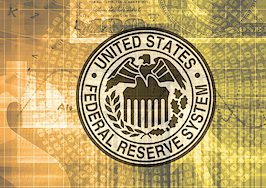- Accumulated unsatisfied demand for housing is going to persist no matter what.
- Mortgage rates would have to approach 5.00 percent to slow things down a lot.
- One party pulling in unison might achieve revenue-neutral tax reform and more.
- Spending targeted toward infrastructure will provide little durable boost for the economy.
We have just elected the least predictable president in U.S. history. Friction between voters who feel that they personally “won” or “lost” is hotter than any time since 1968. The nation has been stuck in gridlock for 14 years — actually a comfortable and predictable cocoon for housing and mortgage markets, safe from political lurches. No longer: movement ahead.
Not even The Donald knows what will happen next week. And we’re going to forecast next year?
I was steeped in history in my crib (1949) by two political-junkie parents, so let’s take a long, long back view and evaluate probabilities just one year ahead.
Inventory
Housing may be the easiest category of all. We close 2016 short of for-sale inventory in all markets worth buying.
That’s not going to change. Trump or no Trump, nothing is suddenly going to increase the available supply of buildable land — that’s the choke point, not nails or two-by-fours.
Some things may chill ardor among buyers, but accumulated unsatisfied demand is going to persist no matter what.
Mortgage rates
Two potential chillers lie ahead.
First is mortgage rates, of course. At this writing, rates have jumped above 4.00 percent for the first time in a year, but are still very low.
Don’t make a molehill out of a dimple. Rates would have to approach 5.00 percent to slow things down a lot.
Mr. Trump is a notoriously combative sort, and he may get in a fight with the Fed, but he’s a real estate guy who knows the economy needs low rates.
Too much stimulus spending or tax cuts, and long-term rates will go up, Fed or no Fed. Try to replace Fed Chair Janet Yellen with an easy-money pigeon, and long-term rates will go up faster and farther.
But it looks as though Trump’s economic team will have several people old and scarred enough to explain to him: don’t fight the Fed.
Effects of previous legislation
In the 100-day frenzy ahead, February-April, we may see a Rose Garden bonfire of executive orders from the Previous Occupant. Danged if I can see economic effect.
We’ll certainly see a run at hobbling the CFPB (Consumer Financial Protection Bureau), and perhaps undoing the hated and wasteful TRID mortgage procedures. That would make many of us feel better and might reduce some consumer costs, but it’s not going to slingshot the economy.
Obamacare is falling apart of its own weight, but a replacement will not help the overall economy unless it brings deep reductions in the cost of health care and insurance. Some day, I hope, but that’s not going to happen in 2017.
The big deals are tax cuts and stimulus spending.
Conservatives asked to spend more money in the last 20 years have replied by threatening to shut down the government. However, asked nicely by a president of their own party, they can dive into a vat of booze as joyfully as any Democrat. Same with tax cuts.
On the other hand, one party pulling in unison might achieve revenue-neutral tax reform, begin to chisel at unaffordable entitlements, raise tax money by closing loopholes and actually stimulate the economy by rationalizing corporate taxes.
Planned spending on infrastructure
Even spending targeted toward infrastructure is more threat than benefit. It will provide little durable boost for the economy, generate more debt and do a lot to force the Fed to tighten.
“Infrastructure spending” is just Harvard-ese for pork-barrel waste: The projects must be net-productive.
Few are, and local government knows best — better yet if local taxpayers must pay a chunk of the freight.
There will be amusement value in 2017.
Consider the wisdom attributed to U.K. Prime Minister Harold Macmillan. Asked by a young reporter the greatest risk to his government’s plans, Macmillan replied, “Events, my dear boy, events.”
Only the rare president who has run a large political operation can be prepared for the sheer volume of events and decisions arriving every day, crowding out the original agenda — no matter what it was.
The year 2017 is unusually unpredictable, but the range of surprises will be as narrow as usual.
Lou Barnes is a mortgage broker based in Boulder, Colorado. He can be reached at lbarnes@pmglending.com.










